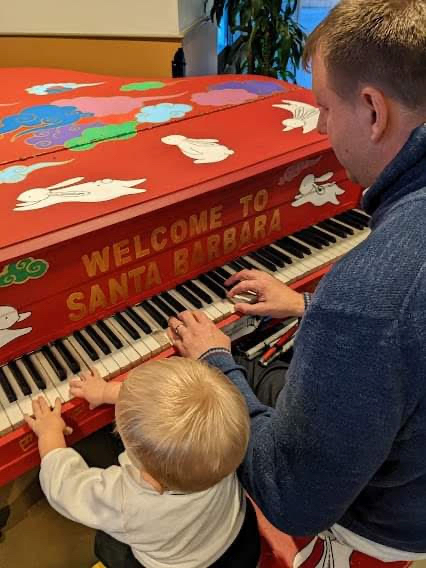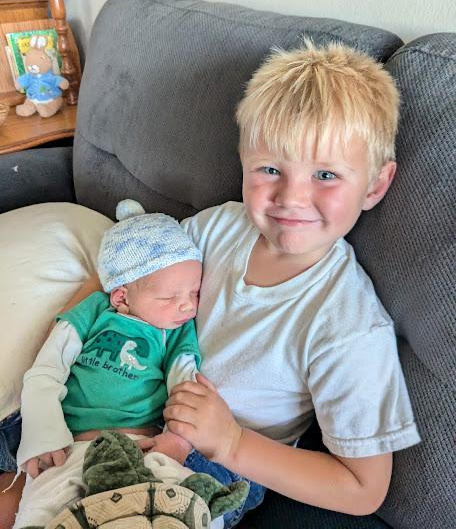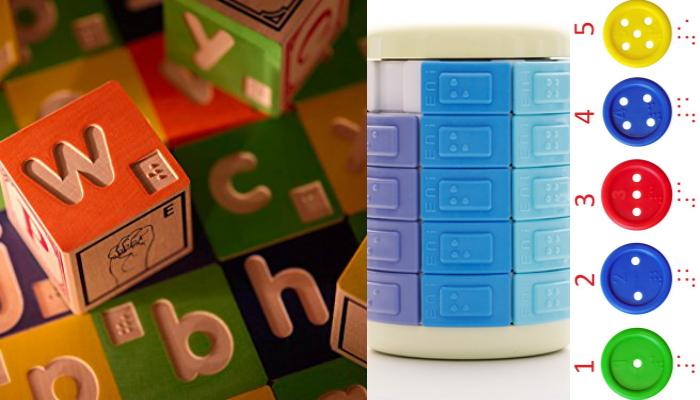The Gift of Understanding: How a Young Child Helps His Blind Father Navigate Life

When a parent is blind, it’s natural for people to wonder how their sighted child will adapt. Will they struggle to understand their parent’s needs? Will they feel burdened by the responsibility? For families navigating this path, stories like that of Skylar Covich and his son, Peter, provide reassurance that love and intuition transcend any challenges.
Skylar, who was born blind, is a husband and father of two, and a respected professional in the field of accessibility and assistive technology. His journey proves that blindness does not limit one’s ability to build a fulfilling life. And now, as he raises his own children, it’s remarkable to see how naturally his oldest son, Peter, has embraced his father’s blindness—not as an obstacle, but simply as part of life.

Frank Covich, Skylar’s father, recently reflected on this in an email, sharing a beautiful moment between his grandson and son:
“At 3 ½ years old, Peter understands that his father’s eyes do not work. The wonder of little Peter is that, at this age, he has automatically taken on the role of a helper to his father. He helps Skylar in so many ways. He is smart enough to understand to keep the pathways clear for his father. He brings food to the table sometimes. He reminds him about things he takes to work, like his phone and keys. Peter is truly a wonder baby.”
What’s remarkable is that Peter isn’t being taught to help in a formal way—he simply observes, learns, and adapts. Children are naturally intuitive, and when raised in a home where blindness is just another aspect of family life, they develop a deep sense of awareness, problem-solving, and empathy.
It’s understandable that parents of blind children may worry about their child’s future. Will they be able to care for themselves? Will they have a career? Will they be able to have a family of their own? The story of Skylar and Peter offers a heartening answer: Blindness does not stand in the way of these things. Not only is Skylar thriving as a husband and father, but his young son is growing up with a unique sense of compassion and understanding that will serve him for life.

Frank puts it beautifully:
“Peter is not just a miracle baby in that he did not carry the blind gene. Peter is a miracle baby with his intellect, understanding his father’s needs and his role as the first son of my son, Skylar—PhD, husband, and father.”
Stories like this remind us that while raising a blind child comes with uncertainties, the future holds beautiful possibilities. Children of blind parents don’t see limitations—they see love, guidance, and the everyday normalcy of family life. Peter is growing up not just as a son, but as a wonderful helper, a thoughtful observer, and a boy who instinctively understands how to support his father, not because he has to, but because love and family make it second nature.
For parents of blind children wondering what the future may hold, Peter and Skylar’s story is a testament to the fact that blindness does not define a family’s success. With love, faith, and a supportive environment, children will naturally find their own way, just as Peter has.

Related Posts

Eye Conditions and Syndromes, Visual Impairment
Neuralink Announces Plans to Restore Sight to the Blind with Brain Chip
Elon Musk’s company Neuralink has announced plans to begin human trials of its new “Blindsight” brain chip by the end of 2025.

Braille and Literacy, Toys, Visual Impairment
24 Braille Toys for Kids Who are Blind
Everything from alphabet blocks to raised line coloring pages and activity books to puzzles to card and board games... and so much more! And it's all in braille ready for...

Tactile Arts and Crafts, Visual Impairment
Using Origami to Teach Blind and Low-Vision Students Basic Shapes
If, like me, you have wondered why it is important for young students to learn about shapes, here are just a few reasons. Teaching shapes in early education provides children...